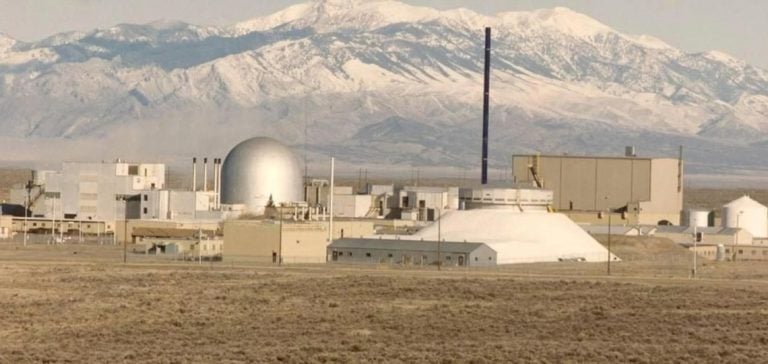Oklo Inc. validates a strategic milestone by finalizing an agreement with the U.S. Department of Energy (DOE) to conduct site inspections for its modular nuclear reactor in Idaho.
This reactor project, scheduled for 2027, is part of a broader drive to develop new nuclear technologies in the United States.
A project structured around SMR
Oklo, which specializes in small modular reactors (SMRs), is developing a technology designed to meet the growing demand for low-carbon energy in specific sectors.
Unlike conventional reactors, SMRs are distinguished by their ability to be deployed rapidly and at reduced cost, thanks to their compact size and modular design.
Oklo’s proposed reactor is based on a fast reactor design, which enables improved fuel cycle management and a significant reduction in nuclear waste.
The agreement signed with the DOE now enables the company to begin the geotechnical and environmental studies required to assess the feasibility of siting this type of reactor near the Idaho National Laboratory.
This step is crucial to determine whether the soil and local infrastructure can support the technical requirements of the project.
Regulatory and environmental challenges
Inspections of the Idaho site must also be accompanied by an in-depth analysis of environmental and radiological impacts.
Compliance with safety standards and environmental criteria is governed by strict regulations imposed by the Nuclear Regulatory Commission (NRC).
Oklo still has to obtain the necessary approvals before starting construction of the reactor.
In 2022, an initial application by the company was rejected by the NRC due to insufficient information being submitted.
This decision underlines the stringent nuclear safety requirements of the US authorities.
The new project aims to overcome these obstacles by relying on more solid technical studies, while the DOE plays a facilitating role to support the company in its administrative and regulatory procedures.
Strategic challenges for the sector
The growing interest in nuclear technologies such as SMRs is partly explained by the need to guarantee reliable power generation, independent of weather conditions.
Small reactors, which can be deployed in remote regions or for specific industrial applications, offer considerable flexibility of use.
Their low cost and accelerated factory construction also make them attractive for fast-moving markets such as data centers.
Major technology companies such as Microsoft and Amazon are already exploring partnerships with nuclear power producers to power their energy-intensive infrastructures.
The stability of the electricity produced by these reactors and their ability to meet the growing needs of businesses without emitting carbon is a key argument in the strategy of diversifying energy sources.
Economic and financial outlook
Oklo’s financing was strengthened by its listing on the stock exchange, following its merger with a special purpose acquisition vehicle (SPAC) headed by Sam Altman.
This transaction raised substantial funds to accelerate the development of the reactor project.
The company’s initial valuation of nearly $850 million reflects investor interest in this emerging technology.
However, Oklo still needs to convince regulators of the long-term viability of its model.
The project also benefits from a favorable political framework in the United States.
The support of the DOE and Idaho’s local authorities demonstrates the United States’ commitment to revitalizing the nuclear industry, seen as an essential lever for decarbonizing the country’s energy sector.
The success of SMR could pave the way for other initiatives in the years to come.
A fast-changing market
SMR technology is also of interest to other players in the energy sector, both public and private.
The development of reactors that are smaller, but just as efficient as traditional models, could enable many countries to modernize their nuclear fleet without the massive investment required to build large-scale power plants.
This modularity also makes it easier to meet specific needs, such as those of isolated areas or industries requiring a constant supply.
As regulators and governments recognize the importance of RMS in the energy transition, new market opportunities are emerging.
Oklo’s strategy is therefore based on an alignment between innovative technology, solid financing and political support.
The next step will be to ensure that site inspections and validation processes run smoothly to meet the 2027 deadline.






















